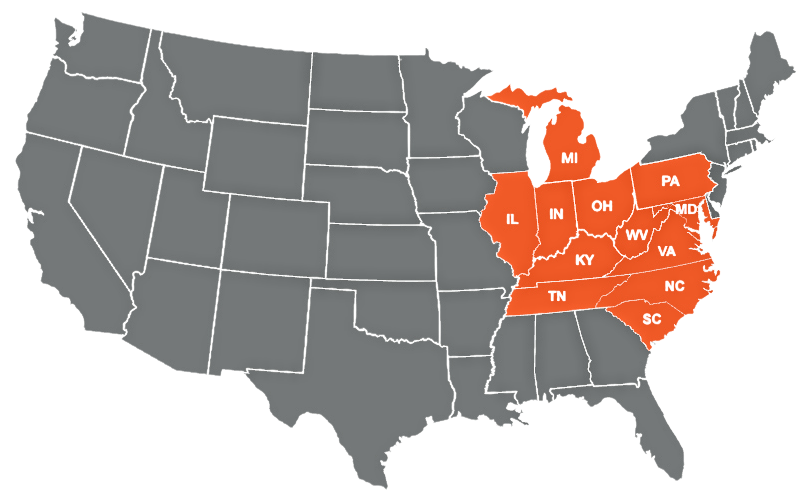In the wake of natural disasters, communities face the daunting task of cleanup and rebuilding. Amidst the chaos and destruction, an unexpected hero emerges: the mobile crusher. At Cornerstone Crushing, we specialize in mobile crushing services that are revolutionizing disaster recovery efforts, providing a beacon of hope and efficiency in the most challenging circumstances.
Understanding Mobile Crushers
At its core, a mobile crusher is a portable machine designed to reduce large rocks, concrete, or other materials into smaller rocks, gravel, or rock dust. Unlike their stationary counterparts, mobile crushers bring the crushing capability directly to the worksite, offering unparalleled flexibility and efficiency.
Types of Mobile Crushers
Mobile crushers come in various types, each suited for specific applications:
- Jaw crushers: Ideal for primary crushing of hard materials
- Impact crushers: Best for softer materials and for creating cubical-shaped products
- Cone crushers: Excellent for secondary and tertiary crushing stages
- Screen plants: Used for sorting and classifying crushed materials
The versatility of these machines makes them invaluable in disaster recovery scenarios, where the type and composition of debris can vary greatly.
Advantages Over Stationary Plants
Mobile crushers offer several key advantages in disaster zones:
- Portability: Can be quickly deployed to affected areas
- Flexibility: Adaptable to various types of debris and materials
- Efficiency: Eliminates the need for long-distance material transportation
- Cost-effectiveness: Reduces overall operational costs
- Scalability: Can be used in both small and large-scale recovery efforts
These benefits make mobile crushers an essential tool in the disaster recovery toolkit, enabling rapid response and efficient processing of debris in situ.
Role of Mobile Crushers in Disaster Recovery
In the aftermath of a disaster, time is of the essence. Mobile crushers play a crucial role in accelerating recovery efforts through:
Immediate Debris Management
When disaster strikes, one of the first challenges is clearing roads and public spaces of debris. Mobile crushers can be quickly deployed to:
- Clear roads: Enabling access for emergency vehicles and relief efforts
- Process fallen structures: Turning rubble into usable material for reconstruction
- Manage waste: Reducing the volume of debris requiring disposal
By tackling these immediate needs, mobile crushers help communities take the first steps towards normalcy.
On-Site Material Processing Capabilities
The ability to process materials on-site is perhaps the most significant advantage of mobile crushers in disaster recovery. This capability:
- Eliminates the need for long-distance transportation of debris
- Reduces fuel consumption and associated costs
- Minimizes environmental impact by reducing truck traffic
- Allows for immediate use of processed materials in rebuilding efforts
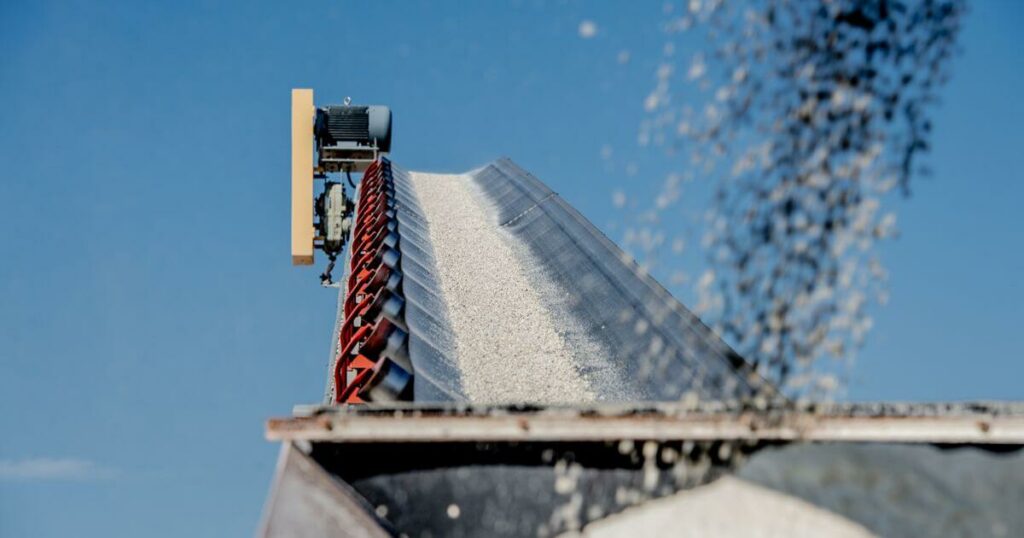
Contribution to Faster Recovery Timelines
By enabling on-site processing, mobile crushers significantly compress recovery timelines. They allow for:
- Simultaneous cleanup and processing: As debris is cleared, it’s immediately processed
- Rapid material availability: Crushed materials can be used right away for rebuilding
- Efficient resource allocation: Reduces the need for external material sourcing
This acceleration of recovery efforts can mean the difference between months and years in returning a community to normalcy.
Applications in Various Disaster Scenarios
Mobile crushers prove their worth across a range of disaster scenarios, each presenting unique challenges and opportunities.
Earthquake Aftermath
In the wake of an earthquake, mobile crushers are invaluable for:
- Processing collapsed buildings and structures
- Creating aggregate for new foundations and roads
- Managing and recycling concrete debris
Hurricane and Flood Cleanup
After hurricanes and floods, mobile crushers assist in:
- Clearing waterlogged debris and damaged structures
- Processing uprooted trees and vegetation
- Creating material for levee reinforcement and coastal protection
Wildfire Restoration Efforts
In areas devastated by wildfires, mobile crushers aid in:
- Processing burnt structures and vegetation
- Creating erosion control materials
- Preparing the ground for reforestation efforts
By adapting to the specific needs of each disaster type, mobile crushers demonstrate their versatility and importance in recovery operations.
Benefits of Using Mobile Crushers in Disaster Zones
The advantages of employing mobile crushers in disaster recovery extend beyond immediate debris management, offering long-term benefits to affected communities.
Cost-Effectiveness
Mobile crushers contribute to significant cost savings in disaster recovery:
- Reduced transportation costs: On-site processing eliminates the need for long-distance hauling
- Lower disposal fees: By recycling materials, less waste ends up in landfills
- Efficient resource utilization: Crushed materials can be reused, reducing the need for new materials
These cost savings can be redirected to other critical aspects of recovery, such as housing and infrastructure rebuilding.
Environmental Impact Reduction
The use of mobile crushers aligns with sustainable recovery practices:
- Minimized carbon footprint: Less transportation means reduced emissions
- Resource conservation: Recycling debris reduces the demand for new raw materials
- Landfill diversion: On-site processing significantly reduces the volume of waste sent to landfills
By adopting environmentally friendly practices during recovery, communities can rebuild in a more sustainable manner.
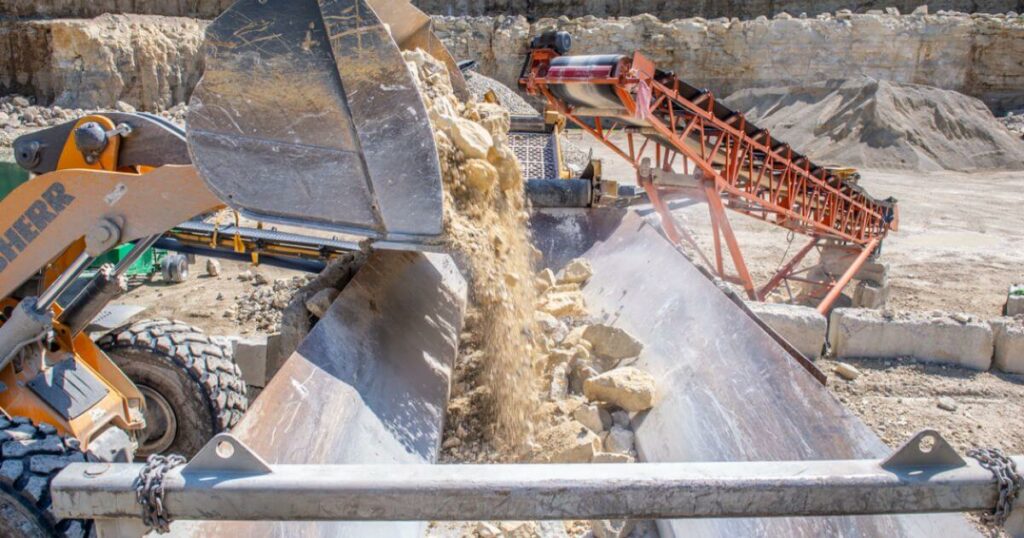
Resource Optimization
Mobile crushers enable efficient use of available resources:
- Material recycling: Turning debris into valuable construction materials
- Local resource utilization: Reducing dependence on external material sources
- Customizable output: Producing materials that meet specific local rebuilding needs
This optimization ensures that recovery efforts make the most of available resources, promoting self-sufficiency and resilience.
Improved Logistics
The logistical advantages of mobile crushers are significant:
- Reduced traffic congestion: Fewer trucks needed for debris removal
- Flexible site management: Crushers can be moved as recovery progresses
- Streamlined operations: Integration of clearing and processing activities
These logistical improvements contribute to smoother, more efficient recovery operations.
Challenges and Solutions
While mobile crushers offer numerous benefits, their deployment in disaster zones is not without challenges. Understanding these obstacles and their solutions is crucial for effective implementation.
Accessibility Issues in Disaster-Affected Areas
Challenge: Damaged infrastructure can make it difficult to transport and position mobile crushers.
Solutions:
- Use of specialized transport vehicles designed for rough terrain
- Deployment of smaller, more maneuverable crushing units
- Temporary road improvements to facilitate equipment access
Power Supply Concerns
Challenge: Disaster zones often face power outages, potentially affecting crusher operations.
Solutions:
- Integration of built-in generators in mobile crushing units
- Use of solar-powered auxiliary systems for less power-intensive components
- Establishment of mobile power stations to support crushing operations
Operator Safety in Hazardous Environments
Challenge: Disaster areas can pose significant safety risks to equipment operators.
Solutions:
- Implementation of remote operation capabilities
- Enhanced operator training for disaster zone scenarios
- Development of crushing units with advanced safety features and protective enclosures
By addressing these challenges head-on, the effectiveness of mobile crushers in disaster recovery can be maximized, ensuring their benefits are fully realized.
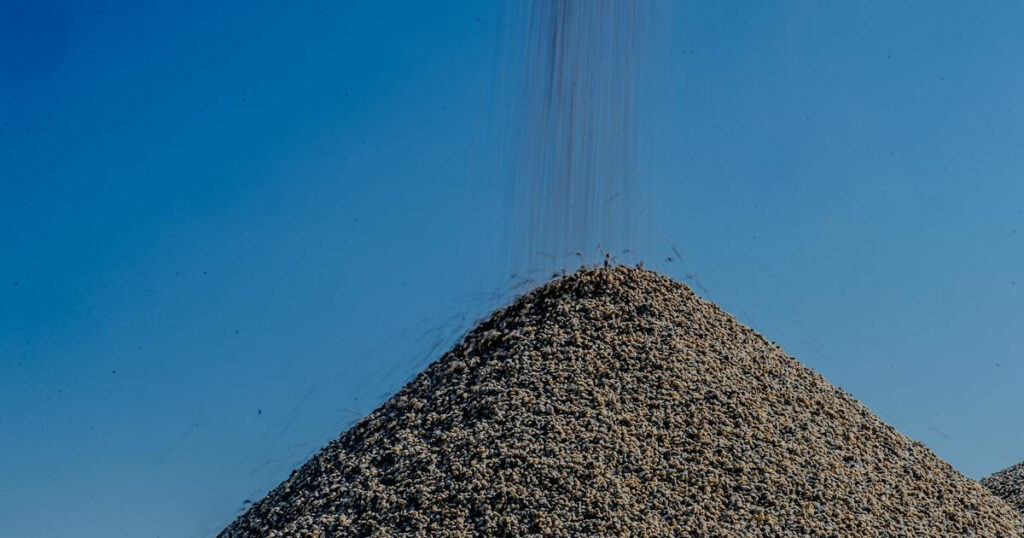
Technological Advancements in Mobile Crushing
The field of mobile crushing continues to evolve, with new technologies enhancing efficiency, safety, and environmental performance.
Automation and Remote Operation
Recent advancements include:
- AI-powered crushing: Optimizing crush settings based on input material
- Remote monitoring systems: Allowing real-time performance tracking and adjustments
- Autonomous operation capabilities: Reducing the need for on-site personnel in hazardous areas
These technologies not only improve efficiency but also enhance safety in disaster recovery operations.
Improved Fuel Efficiency
Innovations in fuel efficiency include:
- Hybrid power systems: Combining diesel engines with electric drives
- Energy recovery systems: Capturing and reusing energy from the crushing process
- Smart power management: Optimizing engine performance based on workload
These improvements reduce operational costs and minimize the environmental footprint of crushing operations.
Enhanced Safety Features
Modern mobile crushers incorporate advanced safety features such as:
- Dust suppression systems: Minimizing airborne particulates
- Noise reduction technologies: Lowering the impact on operators and surrounding areas
- Advanced guarding systems: Preventing accidental contact with moving parts
These safety enhancements make mobile crushers more suitable for use in sensitive disaster recovery environments.
Trust Cornerstone Crushing to Pioneer Resilient Recovery with Mobile Crushing Solutions
Mobile crushers have emerged as indispensable tools in disaster recovery, transforming the way communities approach cleanup and rebuilding. By enabling on-site material processing, these versatile machines accelerate recovery timelines, reduce costs, and promote sustainable practices.
The benefits of mobile crushers extend far beyond mere debris management. They contribute to:
- Faster road clearance and access for emergency services
- Efficient recycling of materials for immediate use in reconstruction
- Significant reduction in environmental impact through decreased transportation and landfill use
- Cost savings that can be redirected to other critical recovery needs
In the face of increasing natural disasters, mobile crushers stand as a testament to human ingenuity and resilience. They represent not just a tool for cleanup, but a means of transforming destruction into the very building blocks of recovery and renewal.
As we look to the future, it’s clear that mobile crushers will play an ever more crucial role in helping communities rise from the rubble, turning disaster into opportunity and paving the way for stronger, more resilient rebuilding efforts.
Cornerstone Crushing is at the forefront of mobile crushing technology, offering cutting-edge solutions that turn debris into opportunity. Our expert team and state-of-the-art equipment can help your community rebuild faster, more efficiently, and more sustainably. Don’t let disaster debris slow down your recovery – contact Cornerstone Crushing today to learn how our mobile crushers can accelerate your path to renewal. Contact us to schedule a consultation and discover the transformative power of on-site material processing. Let Cornerstone Crushing be the foundation of your community’s resilient future.
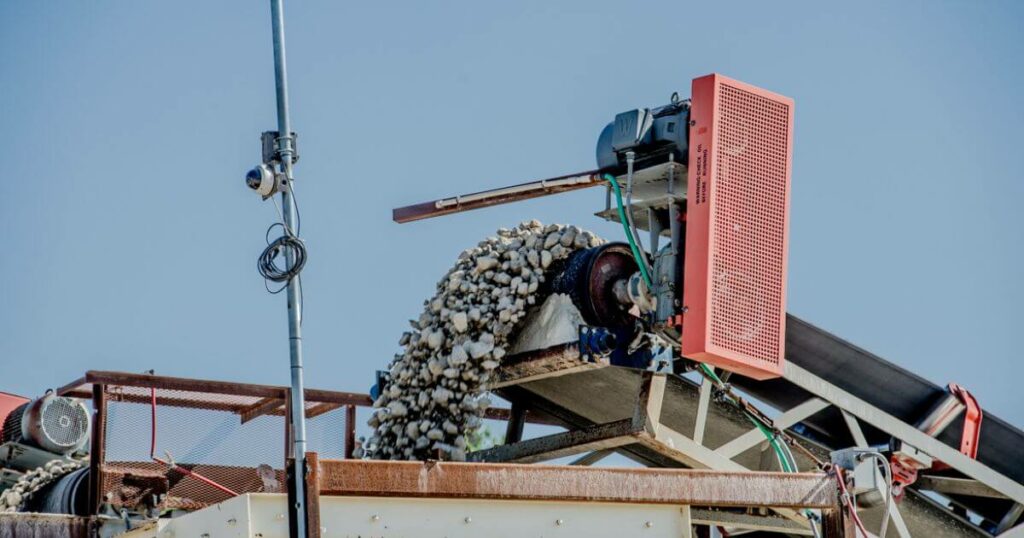
FAQ Section
- How quickly can mobile crushers be deployed to disaster zones?
Mobile crushers can typically be deployed within 24-48 hours, depending on the disaster location and severity. Many companies maintain a fleet of ready-to-deploy units specifically for rapid disaster response. - What types of materials can mobile crushers process in disaster recovery?
Mobile crushers can process a wide range of materials including concrete, asphalt, brick, stone, and even some metals. They’re particularly effective with construction and demolition debris common in disaster zones. - Are mobile crushers environmentally friendly?
Yes, mobile crushers contribute to environmental sustainability by enabling on-site recycling, reducing transportation emissions, and minimizing landfill use. Many modern units also incorporate eco-friendly features like dust suppression and low-emission engines. - How do mobile crushers contribute to sustainable rebuilding efforts?
By recycling debris into usable construction materials, mobile crushers reduce the need for new raw materials. This not only conserves resources but also lowers the carbon footprint of rebuilding efforts. - Can mobile crushers operate in areas with limited infrastructure?
Yes, mobile crushers are designed for operation in challenging environments. Many units are self-powered and can function independently of local infrastructure, making them ideal for disaster-affected areas. - What safety measures are in place for operating mobile crushers in disaster zones?
Modern mobile crushers incorporate numerous safety features including remote operation capabilities, advanced guarding systems, dust suppression, and noise reduction technologies. Operators also receive specialized training for disaster zone operations. - How do mobile crushers compare to manual debris clearing methods?
Mobile crushers are significantly more efficient than manual methods, processing large volumes of debris quickly and converting it into usable material. They reduce labor requirements, accelerate cleanup timelines, and enable immediate material recycling, which is typically not possible with manual clearing.

